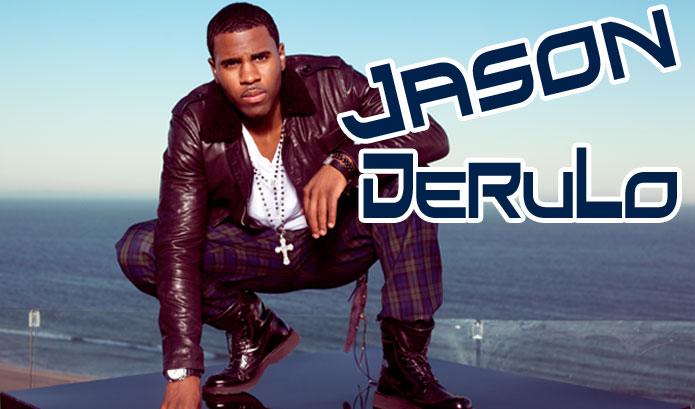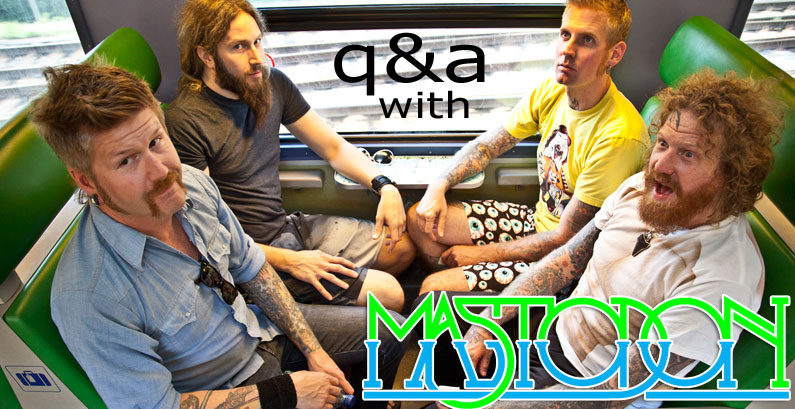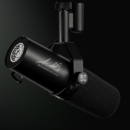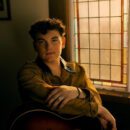by Dan Kimpel

“I feel,” is an expression that prefaces many of Skylar Grey’s responses to questions about life, creativity, songwriting and her auspicious ascension into the constellation of modern music makers.
Her distinguishing vocals and self-penned hooks light up a spectrum of hits: “Coming Home” by Diddy-Dirty Money; “I Need a Doctor” by Dr. Dre with Eminem; “Words I Never Said,” by Lupe Fiasco and “Room for Happiness” by Kaskade. As revealed through the open veined authenticity of her lyrics, melodies and performances, it is apparent that Skylar Grey feels a great deal.
The emergence of Skylar Grey is a tale of one artist, two names, and a convoluted path. Holly Brook Hafermann, known professionally as Holly Brook, moved from her native Wisconsin to Los Angeles, CA, at age 17. She knew little about the industry into which she ventured, but she recorded a demo and was subsequently featured with Linkin Park principal Mike Shinoda’s side project, Fort Minor, on the hit “Where’d You Go.” Signed to a label deal with Linkin Park’s Warner Bros. affiliated Machine Shop imprint, Brook released a CD, Like Blood, Like Honey.
But when it all fell apart, she took time off––not all of by choice––and mapped a new musical path. Reinventing herself as Skylar Grey, she connected with hit producer Alex Da Kidd who suggested she write and record vocal hooks over preexistent tracks. The transformation has been undeniable, not only for Grey’s haunting performances, but for her incisive songwriting revealed on the two-time Grammy nominated “Love the Way You Lie” by Eminem featuring Rihanna, and “Castle Walls” by T.I.
Now, with the release of Invinsible, her first full-length release under her new name, this artist is embarking on a tour of Europe with Bruno Mars. On the eve of her departure, she took time from rehearsals for an exclusive interview with MC.
Music Connection: You were raised in Mazomanie, WI. How did you fit into a town with a population of 1,500 people?
Skylar Grey: I kept to myself. I was creative. I was kind of a freak, people would tell me. But I just liked to do what I liked to do, and it wasn’t interesting to the other kids. That’s what set me apart. I knew what I wanted to do from the time I was six years old, what I wanted to be when I grew up, and I was working toward that my whole childhood. So it was kind of alienating. My mom was a kooky artist, and I think she felt different from the other people in town too. It’s Middle America––it’s harder to locate those open-minded, creative, free spirits to relate to.
MC: Were you a diligent student?
Grey: I didn’t pay attention in history and I don’t feel like I know anything about the past. I want to go back to school and learn about history and study American literature and read classic poetry and novels that I missed out on. In school, when I was growing up, I was working so hard on my music that I didn’t necessarily pay attention to those things. But now I’m wishing I had, that I would have spent the time. But it’s all good. I’m in a good place in my life. Now I can go back and learn new things.
MC: Your singing voice has both its own identity and a transparency; is this what makes it so adaptable for a variety of mixes, remixes and genres?
Grey: I’m not trying to sound like anybody or do any specific style other than what I was born to do naturally. I think that’s why it can live in so many different genres. If I tweaked my voice and tried to make it hip-hop, and put it over a rock track, it would sound weird. Because my voice doesn’t have a specific genre to it, it can be put on a lot of different genres.
MC: Your story is a cautionary tale of an artist who had little control over her initial direction. Could you elaborate on this experience?
Grey: I was signed when I was 18 or 19 to Warner Bros. I was just a naïve girl from Wisconsin. I didn’t know what I was getting myself into. I honestly didn’t know what a record deal was when I was offered one. I came out to L.A. to make music, but I didn’t know anything about the actual business of it. So through trial and error, I learned a lot of things, and I realized I wasn’t in the situation I wanted to be in after a while. So I asked to leave the label.
MC: And you weren’t able to record at that time, correct?
Grey: Yeah, because when I asked to leave the label, it was agreed to verbally, but we had to work out a termination agreement. And that took almost a year. So of course if the label knows I’m going to leave they’re not going to do anything to support my music, but at the same time I couldn’t do anything on my own because they still owned me. I was totally stuck in a situation where I couldn’t make a living with my job.
MC: And we understand that you worked a series of straight gigs, including clerking at Barnes & Noble?
Grey: I realized I needed to figure out a way to make a living. I played keyboards for Duncan Sheik, but he toured so sporadically that it wasn’t enough money per year to pay all my expenses. So I worked in a bookstore. And I edited porn. Then I would get called out on another tour and I’d have to quit my job.
I decided I wasn’t on the right path again, and I decided to change everything. I drove up to a cabin in the woods in Oregon, because this woman has an artists retreat up there for injured, creative souls. So I applied and she accepted me. I traded doing some work for her for a cabin. I was out in the wilderness for four months solid and I got back on my feet.
MC: What did you experience in this isolation?
Grey: I was getting rid of the clutter. I threw out a lot of clothes and got rid of a lot of stuff. I didn’t want to be attached to anything material. I wanted to be out there by myself and not listen to anyone else, to figure out what I wanted, rather than what everyone else wanted for me. It was a really empowering thing––to realize that I could be in control of my own life. I didn’t even know what that felt like before.
MC: Speaking of control, your first single, “Invisible,” opens with the lines, “I take these pills to make me thin/I dye my hair and cut my skin.” Was anorexia ever an issue for you?
Grey: When I in high school I was a gymnast and I had to wear a leotard. And knowing that there were peers watching me, and seeing all of this stuff on TV and in magazines, and feeling like I wasn’t as desirable as those girls, I didn’t realize how thin I was getting. It was a control thing. I wanted to prove that I could be in control of my weight. And it got to the point of being totally unhealthy.
MC: When did it dawn on you that it was out of control? And how did you deal with it?
Grey: If you have an eating disorder, you have a warped perception of what you look like. In the mirror I would see something totally different from reality. I didn’t have to deal with it for that long, because one morning I woke up and I saw what everybody else saw. And I realized, “Holy shit! I am way too skinny and it’s not sexy.” That’s when I decided to begin working toward recovery. It was something I did on my own, but I was so out of control that I started going in the other direction. It was a struggle to get a handle on it. The feeling never goes away, even now. I still mentally have issues with that. I find ways to cope and to keep myself healthy.
MC: In this era, pop music seems shiny, happy and party-driven. Lyrically and conceptually, you’re not afraid to go into the other places.
Grey: A lot of pop music these days––although it’s fun and great and there’s some cool stuff out there––has a void for those more emotionally driven, darker songs. There is a whole audience out there waiting to hear that stuff, too.
It isn’t always about sex and drinking and relationships, and falling in love. There are other levels to life. With the song “Invisible,” there are important things to talk about. A lot of people out there can relate to it, and there’s not that much talk about it in the pop world these days.
MC: Talk to us about songwriting.
Grey: The best songs are when I write something that moves me. When it moves me, then it will move someone else. I don’t want to write something contrived. I write what I feel over a track, even if it’s not the usual thing. “Love the Way You Lie,” I wasn’t trying to write a hit song. I just heard the beat and said, “Okay, I’m going to sing what I feel over this.”
I channel it. I don’t feel like I wrote a song––it fell out of my mouth. It led the way. As soon as I start leading, if I get in the way of the pure inspiration and my head starts messing with it, the song usually goes to shit and I have to throw it away. That’s why the best songs happen quickly. I wrote “Love the Way You Lie” in 15 minutes.
MC: But do you spend time on rewriting?
Grey: I don’t do rewrites. I would rather write a brand new song. I throw songs away all the time. If I lose that inspiration, I’m over it. One thing I do, if I like the tracks or a piece of something and if I’m stuck on it, I’ll put it on hold, and maybe bring it out a year later, come back to it, and see if I’m re-inspired. But I don’t go back and do nit-picks on songs.
MC: What are your tools for songwriting?
Grey: I prefer to write longhand, but I don’t always get the chance to. I have a cell phone that has a note pad in it and a voice recorder. Then I use GarageBand to record rough ideas. When I’m finished with a song I’ll record my vocals. I have Pro Tools and everything.
MC: Do you use a vocal producer?
Grey: I don’t let anybody touch my vocals. I do them myself. I like to take the pieces that have real character. The vocal needs to get the emotion across more than anything. If you hear my original version of “Love the Way You Lie,” there is emotion in that vocal. I don’t think anyone else would be able to put that same vocal together. I have an instinct when it comes to that.
MC: Did the label weigh in on song selection for your full-length release?
Grey: I’ve been really fortunate this time around to have a lot of control creatively. Yes, they’re involved in the final selection, but I don’t show them anything unless I’m proud of it and want it on my record. If I do a song and I don’t like it, I don’t play it for many people. I don’t want to get it in their heads. What if they like it and I don’t? The label lets me do my thing creatively, even my music videos. I really come up with the basic concepts and ideas for my website, my photo shoots and every aspect.
MC: Do you have a large circle of musical friends who you spend time with creatively or socially?
Grey: When I’m working on an album, I try to stay pretty small with my musical family, because it’s an intimate experience to make a record. If I was to work with all these writers and producers, I feel like there would be a lack of consistency or cohesion. I worked with Alex Da Kid on this record from top to bottom, and it’s been great, but I have a lot of songwriter friends. Whenever I write with someone, I learn something new. Marilyn Manson is featured on my album (on “Can’t Haunt Me”), and that was a great collaboration and a learning experience,
Who knows where this will go? I don’t want to stick to one thing. I’m growing, I’m curious and I want to learn. I’m sure there will be many surprises in my future.
Contact Jessica Erskine, jerskine@rogersandcowan.com












